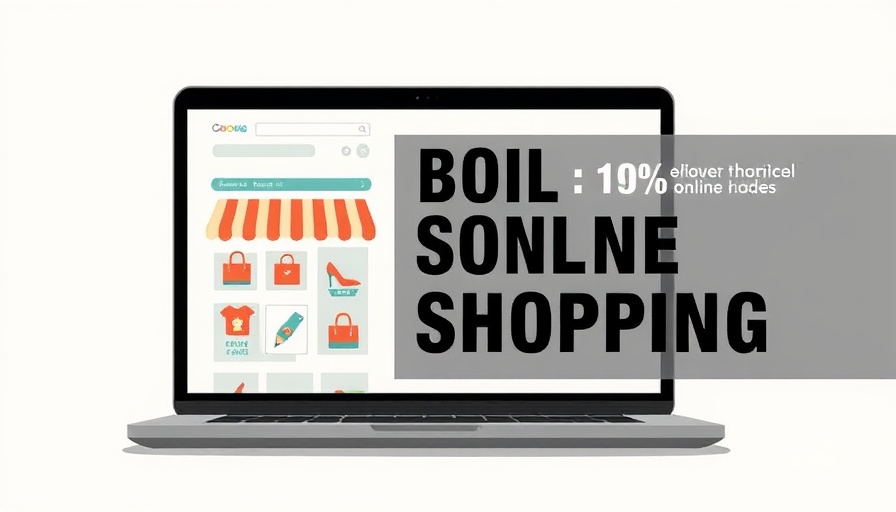
The Evolving Landscape of Online Shopping
As digital platforms continue to dominate the shopping experience, understanding consumer behavior has become paramount. Today’s online shoppers are not just purchasing products; they are engaging in an interconnected process influenced by factors like convenience, price, and social proof. According to recent analytics, e-commerce sales are projected to grow, with brands needing to adapt rapidly to rapidly changing consumer expectations.
Measurement and Insights: The Key to Success
Marketers must embrace data-driven strategies to capture the nuances of consumer preferences. Tools like Google Analytics and social media insights provide businesses with valuable information that can shape marketing strategies, allowing for better targeting and higher conversion rates. Adopting customer engagement strategies that leverage analytics is essential for optimizing user experiences.
The Importance of User Experience
User experience (UX) is at the forefront of online shopping behavior. Brands are now investing in website optimization techniques that enhance the shopping journey—from fast-loading pages to streamlined checkout processes. A positive UX leads to increased consumer satisfaction, loyalty, and ultimately better sales performance.
Personalization: Meeting Shopper Expectations
Today’s consumers expect personalized interactions with brands. Incorporating personalization tactics—like recommending products based on browsing history—can cultivate stronger connections with customers. E-commerce sites that effectively use personalization tend to see increased conversion rates as they cater to individual shopper needs.
Influencer Marketing and Its Impact
Influencer marketing continues to thrive, particularly in the e-commerce space. Influencers have the power to shape consumer perceptions and drive sales through authentic endorsements. Brands leveraging influencer partnerships can tap into engaged audiences and enhance brand awareness in a crowded market.
Future Trends in Online Shopping
Looking ahead, voice commerce and augmented reality (AR) are set to transform online shopping experiences. With the growing adoption of smart speakers and AR tools, brands must craft strategies that seamlessly integrate these technologies into their marketing efforts. Understanding these trends will be crucial for maintaining competitiveness.
Crafting Effective Marketing Strategies
As shopping behaviors evolve, businesses need to develop effective marketing strategies focusing on content marketing, social media engagement, and SEO techniques. Implementing a cohesive digital marketing plan ensures businesses remain visible and resonate with their target audience amid a sea of competition.
Conclusion: Take Action to Stay Competitive
For brands looking to thrive in this rapidly changing digital landscape, investing in innovative marketing solutions is non-negotiable. By focusing on user experience, leveraging analytics, and staying abreast of trends like influencer marketing and AR, businesses can not only meet but exceed consumer expectations. It's time to take action and harness these insights to drive measurable results.
 Add Row
Add Row  Add
Add 




Write A Comment